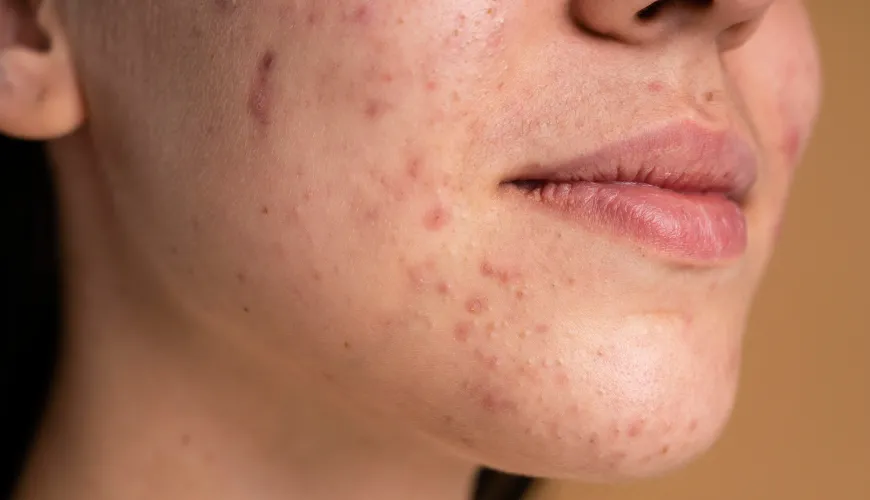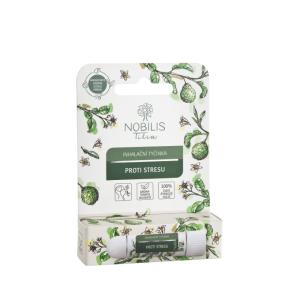
When rib pain under the breasts to the touch makes your life uncomfortable

When It Hurts Under the Breasts - A Body Signal That Should Not Be Ignored
The human body is a masterpiece full of signals that, if we choose to perceive them, can hint at what is happening inside us. One of these warning signals can be pain under the breasts, whether it appears suddenly or worsens gradually. It can be dull, sharp, stabbing, or pressing. It may worsen with movement, deep breathing, or just by touching. And often, it surprises us precisely because we don't know where it originates from – whether from the chest, abdomen, back, or perhaps the heart.
When rib pain under the breasts on touch occurs, many people automatically think of a musculoskeletal problem. But pain in this area can just as well be a symptom of digestive issues, the pancreas, gallbladder, or even a manifestation of stress. And during pregnancy? The situation can become even more complicated.
Where Does the Pain Under the Breasts Come From?
Pain under the breasts can have many causes. Anatomically, this area contains not only the lower part of the rib cage but also the upper part of the abdominal cavity, where the liver, stomach, pancreas, or diaphragm are located. Often, it is pain originating from the muscles or ribs, while sometimes it is a deeper problem – for example, digestive or cardiological.
For many patients, the problem starts inconspicuously – perhaps as pain under the breasts in the middle, which gradually spreads to the sides, the back, or shoots upwards. In such cases, it may be so-called referred pain, where the affected organ sends signals to a distant area of the body.
Particularly concerning can be abdominal pain under the breasts, associated with nausea, vomiting, or changes in stool. In such cases, a gallbladder attack, pancreatitis, or other acute conditions requiring immediate medical attention cannot be ruled out.
But what if the pain is not acute? What if it appears more after eating, in the evening, or after physical exertion? In these cases, it may be a chronic problem rooted, for example, in poor posture, muscle imbalance, or long-term stress.
When the Rib Arch Hurts on Touch
One of the common reasons people seek medical attention is rib pain under the breasts on touch. This problem is often mistaken for cardiac issues, increasing the level of anxiety and fear. Fortunately, in most cases, it is not the heart but so-called costochondritis – inflammation of the cartilage between the ribs and the sternum, which is painful when pressed, during deep breathing, or lying on the side. It can be caused by injury, muscle strain, or severe coughing during an infection.
Another possibility is a rib or thoracic spine blockage, which is common in people who sit at a computer for long periods or have unilateral strain during sports. A typical example is a woman who regularly carries a small child on one hip – her body is asymmetrically loaded, which manifests as pain under the breasts, often unilateral and sensitive to touch.
Try our natural products
Pain in Pregnancy When Not Only the Belly Grows but Also Pressure
One of the special periods when pain in the area under the breasts can occur is pregnancy. Pain under the breasts during pregnancy is most often associated with the growth of the uterus, which presses on the diaphragm, ribs, and surrounding muscles. Towards the end of pregnancy, a woman's body changes significantly – the rib cage expands, ligaments relax, digestion slows down, and internal organs literally shift. All this can cause pressure, pain, or burning in the area under the breasts.
Additionally, during pregnancy, so-called reflux often occurs – the return of stomach acids into the esophagus, causing unpleasant heartburn and pressure under the sternum. This condition is common especially in the third trimester, when the stomach is literally pushed upwards.
A more serious cause that needs to be ruled out is the so-called HELLP syndrome – a pregnancy complication associated with liver damage, manifested by severe pain under the right rib, nausea, headache, and high blood pressure. In such cases, it is necessary to seek medical attention immediately.
When Pain Is Associated with Digestion or Psyche
Pain located in the area under the breasts can also originate from the digestive tract. A very common culprit here is the stomach – whether it's hyperacidity, reflux, peptic ulcer disease, or gastritis. These conditions often manifest as pain under the breasts in the middle, which worsens after eating, consuming coffee, alcohol, or fatty foods.
Similarly, the pain may signal gallbladder problems – especially after a heavy meal or prolonged fasting. Gallstones can cause cramping pain under the right rib, radiating to the back or right shoulder blade. Then there's the pancreas – an organ that hurts deep inside the abdomen, often as abdominal pain under the breasts, accompanied by nausea, vomiting, and sometimes fever.
A special chapter is the influence of the psyche. Stress, anxiety, or long-term tension can cause diaphragm constriction, intercostal muscle tension, and pressure in the lower chest area. This type of pain is often described as a constricting, unpleasant pressure under the breasts, sometimes associated with a feeling of shortness of breath. In these cases, breathing exercises, yoga, relaxation, or psychotherapy can help.
When to Seek a Doctor and When Rest Can Help
Most pains under the breasts are unpleasant but not life-threatening. However, if the pain persists for several days, worsens, or is associated with other symptoms – such as shortness of breath, fever, vomiting, blood in the stool, or severe fatigue – it is always advisable to seek a specialist.
On the other hand, if the pain arose after physical exertion, is mild, and subsides at rest, home measures can be tried: warm compresses, gentle stretching, posture correction, or massages. Dietary adjustments can also help – avoiding irritating foods, smaller portions, plenty of fiber, and hydration.
Did you know that even an unsuitable bra can cause uncomfortable rib pain? If it fits too tightly, it presses on the rib cage and disrupts lymphatic circulation. In women with larger breasts, poor support can additionally lead to muscle overload in the chest and back area.
And finally, as renowned Czech physiotherapist Mgr. Iva Bílková says:
"The body remembers every movement, every tension. When it hurts on the surface, we often search for the cause inside."
Not every pain signal immediately means a serious problem. But every signal deserves attention. Because health, just like peace of mind, begins precisely where we learn to listen to what our body is telling us.


